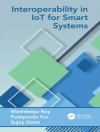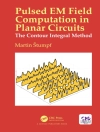This book presents nature inspired computing applications for the wireless sensor network (WSN). Although the use of WSN is increasing rapidly, it has a number of limitations in the context of battery issue, distraction, low communication speed, and security. This means there is a need for innovative intelligent algorithms to address these issues.
The book is divided into three sections and also includes an introductory chapter providing an overview of WSN and its various applications and algorithms as well as the associated challenges. Section 1 describes bio-inspired optimization algorithms, such as genetic algorithms (GA), artificial neural networks (ANN) and artificial immune systems (AIS) in the contexts of fault analysis and diagnosis, and traffic management. Section 2 highlights swarm optimization techniques, such as African buffalo optimization (ABO), particle swarm optimization (PSO), and modified swarm intelligence technique for solving the problems of routing, network parameters optimization, and energy estimation. Lastly, Section 3 explores multi-objective optimization techniques using GA, PSO, ANN, teaching–learning-based optimization (TLBO), and combinations of the algorithms presented. As such, the book provides efficient and optimal solutions for WSN problems based on nature-inspired algorithms.
Inhaltsverzeichnis
Wireless Sensor Network: Applications, Challenges and Algorithms.- Section 1: Bio-Inspired Optimization.- A GA based Fault-Aware Routing Algorithm for Wireless Sensor Networks.- GA based Fault Diagnosis Technique for Enhancing Network Lifetime of Wireless Sensor Network.- A GA based Intelligent Traffic Management Technique for Wireless Body Area Sensor Networks.- Fault Diagnosis in Wireless Sensor Networks using a Neural Network Constructed by Deep Learning Technique.- Section 2: Swarm Optimization.- Intelligent Routing in Wireless Sensor Network based on African Buffalo Optimization.- Robust Estimation of Feedback System’s Parameter in Wireless Sensor Network using Distributed Particle Swarm Optimization.- On the Development of Energy Efficient Distributed Source Localization Algorithm in Wireless Sensor Networks using Modified Swarm Intelligence.- Swarm Intelligence Approach for Ad-Hoc & Sensor Networks.- Section 3: Multi-Objective Optimization.- A Comparensive Survey of Intelligent-based Hierarchical Routing Protocols for Wireless Sensor Networks.- A Qualitative Survey on Sensor Node Deployment, Load Balancing & Energy Utilization in Sensor Network.- Bio-Inspired Algorithm for Multi-Objective Optimization in Wireless Sensor Network.- TLBO based Multi-objective Optimization System in Wireless Sensor Networks.- Nature Inspired Algorithms for Reliable, Low-Latency Communication in Wireless Sensor Networks for Pervasive Healthcare Applications.
Über den Autor
Debashis De earned his M.Tech. from the University of Calcutta in 2002 and his Ph.D. (Engineering) from Jadavpur University in 2005. He is the Professor and Director in the Department of Computer Science and Engineering of the West Bengal University of Technology, India, and Adjunct Research Fellow at the University of Western Australia, Australia. He is a senior member of the IEEE, a life member of CSI, and a member of the International Union of Radio Science. He worked as R&D engineer for Telektronics and programmer at Cognizant Technology Solutions. He was awarded the prestigious Boyscast Fellowship by the Department of Science and Technology, Government of India, to work at the Heriot-Watt University, Scotland, UK. He received the Endeavour Fellowship Award during 2008–2009 by DEST Australia to work at the University of Western Australia. He received the Young Scientist Award both in 2005 at New Delhi and in 2011 at Istanbul, Turkey, from the International Union of Radio Science, Head Quarter, Belgium. His research interests include wireless sensor network, mobile cloud computing, green mobile networks, and nanodevice designing for mobile applications. He has published in more than 200 peer-reviewed international journals in IEEE, IET, Elsevier, Springer, World Scientific, Wiley, IETE, Taylor Francis and ASP, seventy international conference papers, and four researches monographs in Springer, CRC, NOVA, and ten textbooks published by Pearson education.
Amartya Mukherjee is an Assistant Professor at Institute of Engineering & Management, Salt Lake, Kolkata, India. He holds M.Tech. in computer science and engineering from the National Institute of Technology, Durgapur, India. His primary research interest includes embedded application development, robotics, unmanned aircraft systems, Internet of things, intelligent sensor networks, and ad-hoc networks. He has various publications in the fields of robotics, embedded systems, and Io Tin IEEE, Springer, World Scientific, CRC Press, IGI Global. His book “Embedded Systems and Robotics with Open Source Tools” is one of the bestselling books in CRC Press (Taylor & Francis Group).
Santosh Kumar Das received his Ph.D. degree in computer science and engineering from Indian Institute of Technology (ISM), Dhanbad, India, in 2018 and completed his M.Tech. degree in computer science and engineering from Maulana Abul Kalam Azad University of Technology (erstwhile WBUT), West Bengal, India, in 2013. He is currently working as an Assistant Professor at School of Computer Science and Engineering, National Institute of Science and Technology (Autonomous), Institute Park, Pallur Hills, Berhampur, Odisha, India, 761008. He is having more than eight years of teaching experience. He has authored/edited one book in Springer, and published more than 27 research articles. His research interests mainly focus on ad-hoc and sensor network, artificial intelligence, soft computing, and mathematical modelling.
Nilanjan Dey is an Assistant Professor in the Department of Information Technology at Techno India College of Technology, Kolkata. He has completed his Ph.D. in 2015 from Jadavpur University. He is a Visiting Fellow of Wearables Computing Laboratory, Department of Biomedical Engineering University of Reading, UK, the Visiting Professor of College of Information and Engineering, Wenzhou Medical University, P.R. China, and Duy Tan University, Vietnam. He has held honorary position of Visiting Scientist at Global Biomedical Technologies Inc., CA, USA (2012–2015). He is the Editor-in-Chief of International Journal of Ambient Computing and Intelligence, IGI Global, the Series Co-Editor of Springer Tracts in Nature-Inspired Computing, Springer, Advances in Ubiquitous Sensing Applications for Healthcare (AUSAH), Elsevier, and the Series Editor of Intelligent Signal Processing and Data Analysis, CRC Press. He has authored/edited more than 40 books with Elsevier, Wiley, CRC, and Springer, and published more than 350 research articles. His main research interests include medical imaging, machine learning, bio-inspired computing, and data mining. He is a life member of Institute of Engineers (India). He is the Indian ambassador of International Federation for Information Processing (IFIP) – Inter YIT (International Young ICT Professionals group).












